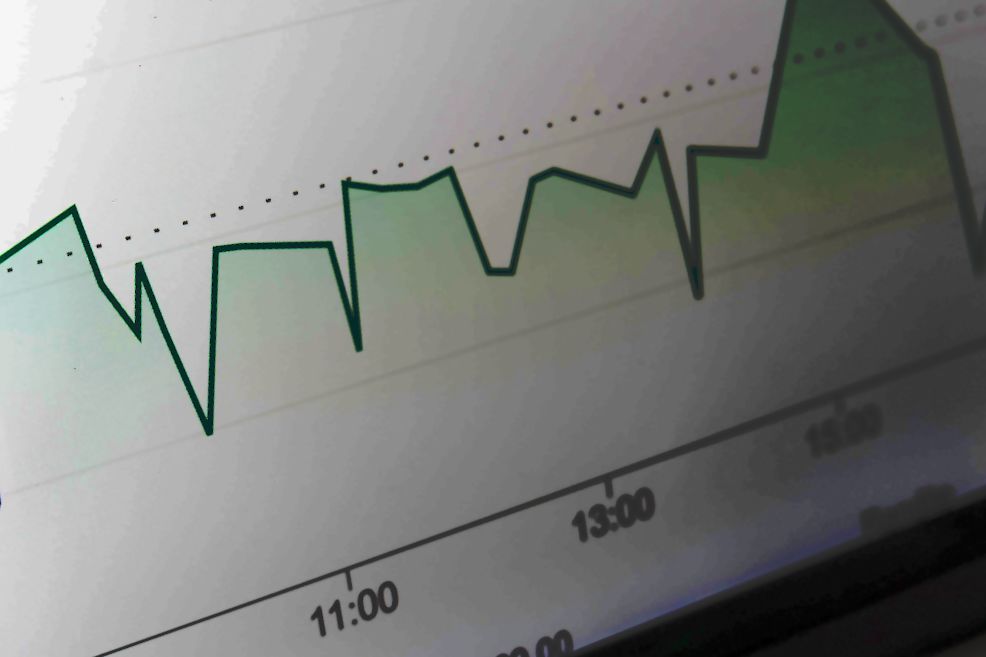Contents
In other words, CFDs are not traded on major exchanges such as the New York Stock Exchange . The CFD is a tradable contract between a client and the broker, who are exchanging the difference in the initial price of the trade and its value when the trade is unwound or reversed. The trader will pay a 0.1% commission on opening the position and another 0.1% when the position is closed. For a long position, the trader will be charged a financing charge overnight (normally the LIBOR interest rate plus 2.5%). On the other hand, if the trader believes that the asset’s value will decline, an opening sell position can be placed.
For example, if you want to open a CFD trade on 50 Tesla shares, with the share price at $800 per share, you’ll only require $8000 to get exposure to a $40,000 position. That’s because your initial margin would only be 20% of the total of $40,000 trade value ($8000). But remember, your profits or losses will be calculated on the full $40,000 value of the position, not the $8000 margin.

The way to use CFDs for hedging is by opening a position that will become profitable if one of your other positions begins to incur a loss. For a full calculation of the profit or loss from a trade, you’d also subtract any charges or fees you paid. Instead, a position is closed by placing a trade in the opposite direction to the one that opened it. A buy position of 500 gold contracts, for instance, would be closed by selling 500 gold contracts. If you did decide to hedge your risk in this way, any drop in the value of the ABC Limited shares in your portfolio would be offset by a gain in your short CFD trade. CFDs trade over-the-counter through a network of brokers that organize the market demand and supply for CFDs and make prices accordingly.
Profit and losses
There are two types of margin you should be familiar with when trading CFD shares. Capital.com is a flexible and scalable solution, regardless of your risk appetite, experience or the amount of money https://traderoom.info/ you have to trade. For example, if you expect the price of gold to increase you may want to open a position with a CFD on gold. Imagine the quoted price is $1,200/$1,205 (this is the bid/ask spread).

Sell prices will always be slightly lower than the current market price, and buy prices will be slightly higher. The difference between the two prices is referred to as the spread. Get tight spreads, no hidden fees, access to 12,000+ instruments and more.
When you trade CFDs with us, you can take a position on thousands of instruments. Our spreads start from 0.7 points on forex pairs including EUR/USD and AUD/USD. You can also trade the UK 100 and Germany 40 from 1 point and Gold from 0.3 points.
Why do people trade CFDs?
You can trade CFDs by opening alive CFD account, or alternatively, you can practise risk-free with virtual funds on aCFD demo account. We offer a wide range of financial markets to trade on, including forex, indices, commodities, shares, ETFs and treasuries. Trading CFDs is similar to speculating or investing in any other product. You select an asset and decide whether to buy or sell depending on your directional opinion. A few things to keep in mind including implementing a trading strategy or even a basic form of technical analysis which will help you better plan expectations while timing your entry. Another thing to keep in mind is the leverage employed which means it’s best to trade smaller positions if your account is small and never risk more than a small percentage of your account per trade.
- CFDs have many advantages and are tax efficient in the UK, meaning that there is no stamp duty to pay.
- If you think the price of an asset will fall, you would open a short position, profiting if it falls in line with your prediction.
- This trade requires at least $1,263 in free cash at a traditional broker in a 50% marginaccount, while a CFD broker requires just a 5% margin, or $126.30.
- Instead, we take a small commission fee when you open and close the trade.
CFDs make it much easier to access global markets for much lower costs and much easier to move in and out of a position quickly. All forms of margin trading involve financing costs, in effect the cost of borrowing the money for the whole position. Some of the benefits of CFD trading are that you can trade on margin, and you can go short if you think prices will go down or go long if you think prices will rise. CFDs have many advantages and are tax efficient in the UK, meaning that there is no stamp duty to pay. Please note, tax treatment depends on individual circumstances and can change or may differ in a jurisdiction other than the UK.
What is a CFD account?
Contracts for difference is a leveraged product, which means that you only need to deposit a small percentage of the full value of the trade in order to open a position. While trading on margin allows you to magnify your returns, your losses will also be magnified as they are based on the full value of the position. This means that you could lose all of your capital, but as the account has negative balance protection, you can’t lose more than your account value. Demo accounts are typically available for 1 month before expiring although most providers offer them for an unlimited period of time nowadays. Practicing on a demo should not be a short endeavor and should extend at least 1-3 months to get truly comfortable with the markets. The next step would be to start your account with a small deposit and trade the smallest sizes possible.

Although CFDs allow investors to trade the price movements of futures, they are not futures contracts by themselves. CFDs do not have expiration dates containing preset prices but trade like other securities with buy and sell prices. CFDs allow traders to trade in the price movement of securities and derivatives. Derivatives are financial investments that are derived from an underlying asset.
The trader’s net profit is the price difference between the opening and closing-out trade . CFD trading enables investors to speculate on various financial markets, such as stocks, forex , indices, commodities, and cryptocurrencies. Furthermore, it is an advanced trading strategy that experienced traders generally employ and is not allowed in the United States. Futures, on the other hand, are contracts that require you to trade a financial instrument in the future. When you trade CFDs , you buy a certain number of contracts on a market if you expect it to rise, and sell them if you expect it to fall.
Contract for Differences (CFD) Definition: Uses and Examples
If you are risk-averse, then you will be looking for opportunities with lower risk-to-reward (R-R) ratios. You close your position when you buy with the current ask price. A 10% margin means that you have to deposit only 10% of the value of the trade you want to open.
If, however, the price falls to $150 a share, you lose $10 a share – a $1,000 loss. When you open a CFD position, you select the number of contracts you would like to trade . Conversely, you could make a loss if the market become a front end web developer moves against you. A CFD is a contract between a broker and a trader who agree to exchange the difference in value of an underlying security between the beginning and the end of the contract, often less than one day.
What are contracts for difference?
CFD trading is the method of speculating on the underlying price of an asset – like shares, indices, commodities, forex and more – on a trading platform like ours. Usually, there is no extra cost when trading FX and commodities roofing companies near me mason woods but other products such as stocks may include the above-discussed commission as a separate charge. This is becoming a trend in other countries where regulators are playing a stronger role in protecting consumers.
Brokers make money from the trader paying the spread meaning the trader pays the ask price when buying, and takes the bid price when selling or shorting. The brokers take a piece or spread on each bid and ask price that they quote. While CFDs offer an attractive alternative to traditional markets, they also present potential pitfalls. For one, having to pay the spread on entries and exits eliminates the potential to profit from small moves. The spread also decreases winning trades by a small amount compared to the underlying security and will increase losses by a small amount. So, while traditional markets expose the trader to fees, regulations, commissions, and higher capital requirements, CFDs trim traders’ profits through spread costs.
CMC Markets is remunerated through the spread which is the difference between the bid and ask price. Contracts for difference is aleveraged product, which means that you only need to deposit a small percentage of the full value of the trade in order to open a position. On the other hand, are contracts that require you to trade on the expected future price of a financial instrument. Unlike CFDs, they specify a fixed date and price for this transaction – which can involve taking physical ownership of the underlying asset on this date – and must be purchased via an exchange.
Trading contracts for difference is a way of speculating on financial markets that doesn’t require the buying and selling of any underlying assets. Find out everything you need to know to understand CFD trading, from what it is and how it works to short trades, leverage and hedging. Since CFDs trade using leverage, investors holding a losing position can get a margin call from their broker, which requires additional funds to be deposited to balance out the losing position.


